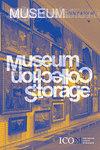数字遗产与博物馆的临时劳动力
IF 0.4
4区 艺术学
0 ART
引用次数: 0
摘要
摘要博物馆响应了问责与和解的呼吁,制定了文化疗养计划,通常包括社区成员前往博物馆参观和研究实物收藏。社区团体能够亲自携带自己的物品,见证他们所体现的故事和关系,这是这些举措最有价值的成果之一。这些访问往往非常昂贵和耗时;因此,博物馆越来越多地探索数字解决方案,以扩大对藏品和其他资源的访问。然而,北美博物馆尤其越来越依赖临时工来填补以前由领薪员工担任的职位。对于经常在有限期限、赠款资助的基础上运作的数字举措来说尤其如此。博物馆研究中的现有文献很少对数字博物馆劳动力的性质及其对工作者、成果和社区合作伙伴的影响进行批判性分析,而是将重点放在标准、协议和最佳实践上。我认为,博物馆向临时数字劳动力的转变挑战了学者们提出的强有力的、针对当地的“护理逻辑”,该逻辑是令人满意的文化疗养工作的基础。这种转变的影响因机构倾向于组织孤岛以及依赖技术专家和专业知识来确保数字项目的成功而加剧。在这篇论文中,我关注了那些在博物馆“做”数字工作的人的经历、观点和日常实践,以此来揭示幕后工作的本质。此外,我证明,对临时工的依赖使已经并将继续受到机构伤害的社区群体受到伤害。为此,我将数字博物馆工作中就业不稳定的现有数据与非殖民化博物馆学和使用数字技术进行文化复兴的文献结合起来,分析数字博物馆工作的不稳定、技术专业化和时间有限性如何表达既定的博物馆学实践。本文章由计算机程序翻译,如有差异,请以英文原文为准。
Digital Heritage and Contingent Labour in the Museum
Abstract Museums have responded to calls for accountability and reconciliation by establishing cultural recuperation programming, which commonly involves community members travelling to museums to visit and research object collections. Community groups identify the ability to be physically present with their belongings and bear witness to the stories and relations they embody as one of the most valuable outcomes of these initiatives. These visits are often prohibitively expensive and time consuming; therefore, museums are increasingly exploring digital solutions to expand access to collections and other resources. However, North American museums in particular are increasingly reliant on contingent labour to fill roles previously occupied by salaried staff. This is especially true for digital initiatives that frequently operate on a limited-term, grant-funded basis. Existing literature in museum studies offers little critical analysis of the nature of digital museum labour and its impact on workers, outcomes and community partners, focusing instead on standards, protocols and best practices. I argue that this shift towards contingent digital labour in museums challenges the robust, locally specific ‘logic of care’ that scholars suggest undergirds satisfactory cultural recuperation work. The impacts of this shift are compounded by the institutional tendency towards organisational silos and the reliance on technical specialists and specialised knowledges to ensure the success of digital projects. In this paper I attend to the experiences, perspectives and everyday practices of those people ‘doing’ digital work in the museum as a method to uncover the nature of that labour behind the scenes. Furthermore, I demonstrate that reliance on contingent labour perpetuates harm against community groups that have already been and continue to be harmed by institutions. To do so, I bring together extant data on employment precarity in digital museum work with literature on decolonial museology and the use of digital technologies for cultural recuperation to analyse the way that the precarious, technically specialised and temporally limited nature of digital museum labour articulates established museological praxis.
求助全文
通过发布文献求助,成功后即可免费获取论文全文。
去求助
来源期刊

MUSEUM INTERNATIONAL
ART-
CiteScore
0.60
自引率
0.00%
发文量
0
期刊介绍:
In its new revised form Museum International is a forum for intellectually rigorous discussion of the ethics and practices of museums and heritage organizations. The journal aims to foster dialogue between research in the social sciences and political decision-making in a changing cultural environment. International in scope and cross-disciplinary in approach Museum International brings social-scientific information and methodology to debates around museums and heritage, and offers recommendations on national and international cultural policies.
 求助内容:
求助内容: 应助结果提醒方式:
应助结果提醒方式:


